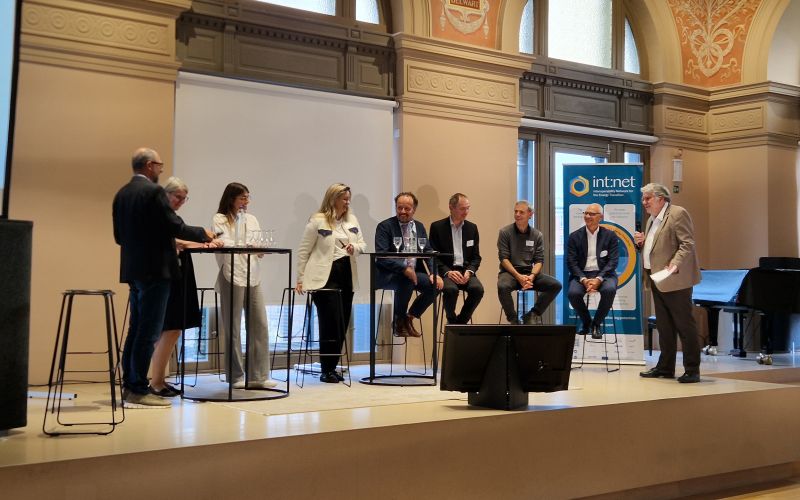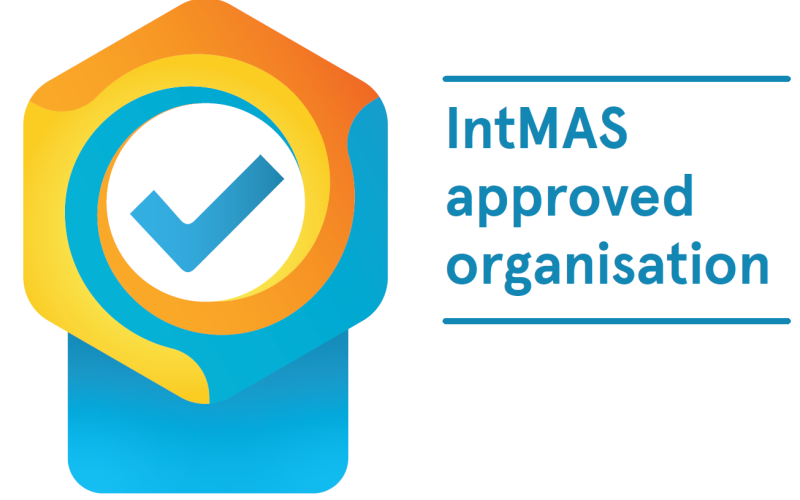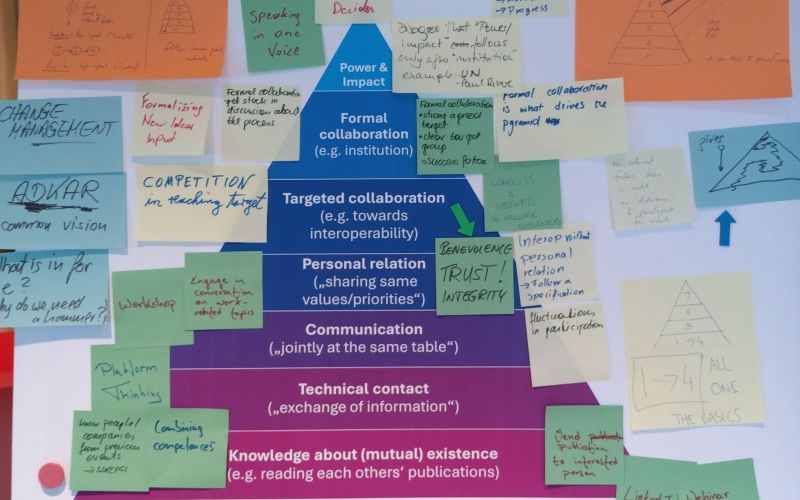From Vision to Implementation: Interoperability for Europe’s Energy System
“It is not enough to know, you also have to apply.
It is not enough to want, one must also act.” (Johann Wolfgang von Goethe)
That was the motto for the final conference of the EC-funded project int:net. Experts from multiple sectors and levels of governance met to receive and discuss the project’s results.
In Block 1 (“The making of int:net”) project leader Antonello Monti from Fraunhofer FIT and the work package leaders presented their learnings and results. Block 2 (“Multi-facetted interoperability”) was dedicated to digging deeper into methodologies for developing architecture models and systemic testing. And in Block 3 (“Making it happen”), project partners presented a set of practical tools that will be the main heritage of int:net. After EMINENT (a tool to measure IOP maturity in a community), the IntMAS model for introducing interoperability in companies was presented and the first enterprises have been awarded the “IntMAS approved organisation” label. Antonello Monti and Ludwig Karg presented the IntMAS certificate to Henry Keppler from Ecoplanet, Andreas Strasser from APG and Joep van Genuchten from uuidea. Finally, the “IOP compass” has been launched (an online capacity building tool for novices in interoperability) as well as IntPPC, the “Interoperability People and Projects Connector” – an online space for the int:net community to keep collaborating and inviting ever more experts to join their forces to quickly move forward in energy interoperability.
Block 4 of the conference hosted a panel with a well-defined composition of experts. In his initial reflection to the motto “Looking back and moving forward”, Mark van Stiphout from DG ENER expressed his satisfaction with the project results. Svetoslav Mihaylov from DG CNECT values very highly that int:net has acted as a coordinator for the Energy Data Space Cluster Projects (EDSCP) and published the “Blueprint of the Common European Energy Data Space (CEEDS)”.
Reflecting on a picture from an orchestra (which Frederik Loeckx from Flux50 had brought) the panel discussed governance scenarios from “motivating people” to “framing with strong institutions”. Mona Marie Bielig from University Seeburg pointed out that at the end it will be people to act and fill the framework. Christiane Mann, representing T&D Europe, pointed to good examples from other sectors, e.g. the manufacturing industry which has managed to agree on a broad set of standards and models to combine them. Natalie Samovich from AIOTI and Massimo Bertoncini representing Rome Flex supported the idea of strong industry communities that jointly contribute to standardisation to lay ground for their business models. Michael Hübner, coordinator of the CET Partnership, contributed with experiences from funding programs, e.g. the Interoperability Validation Network triggered by Austrian partners in the framework of ERA-Net Smart Energy Systems and CETP.
A video summary of the conference with pitches from active contributors will soon be available here. All presentations and links to further reading are also available here.
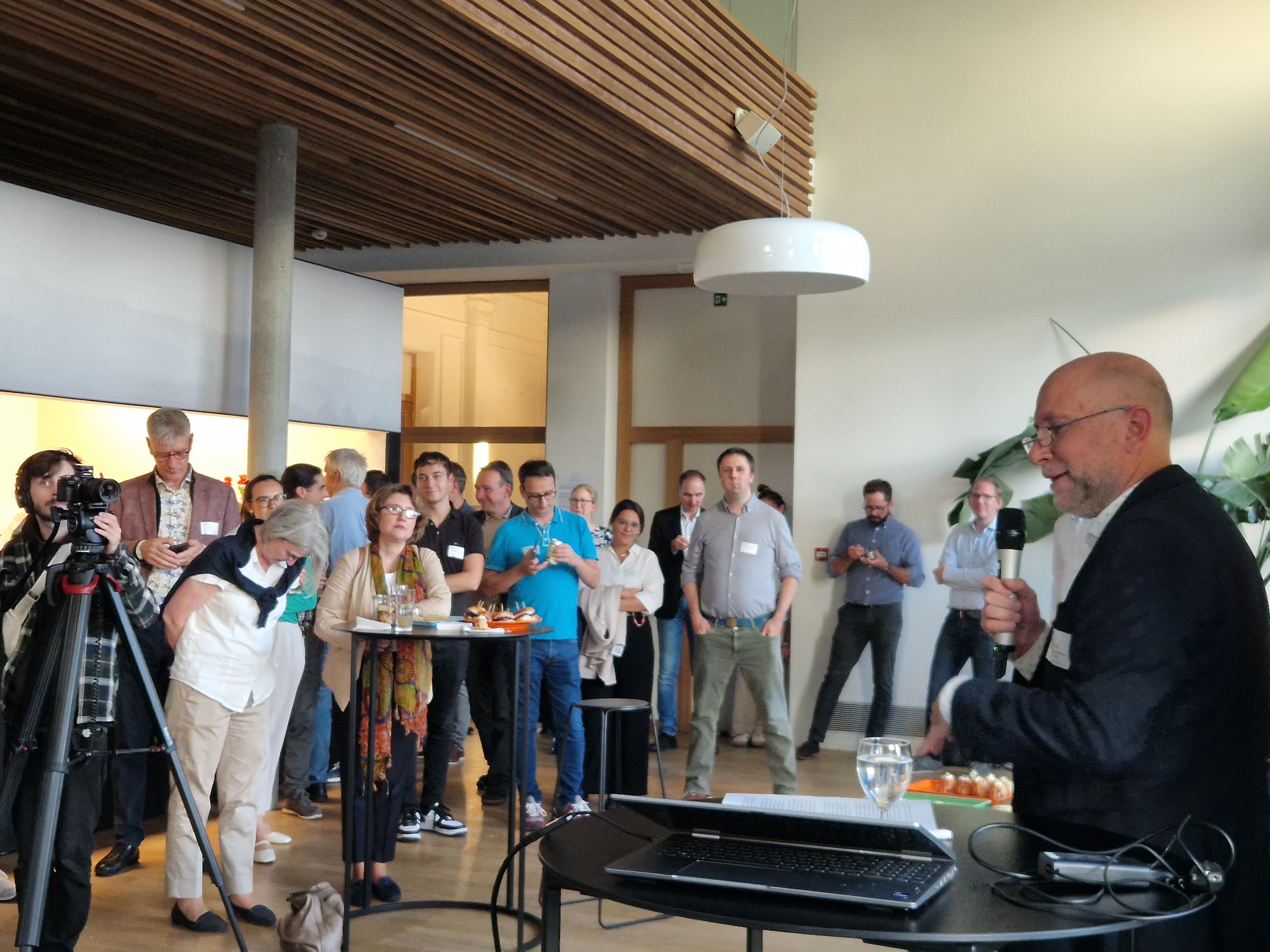
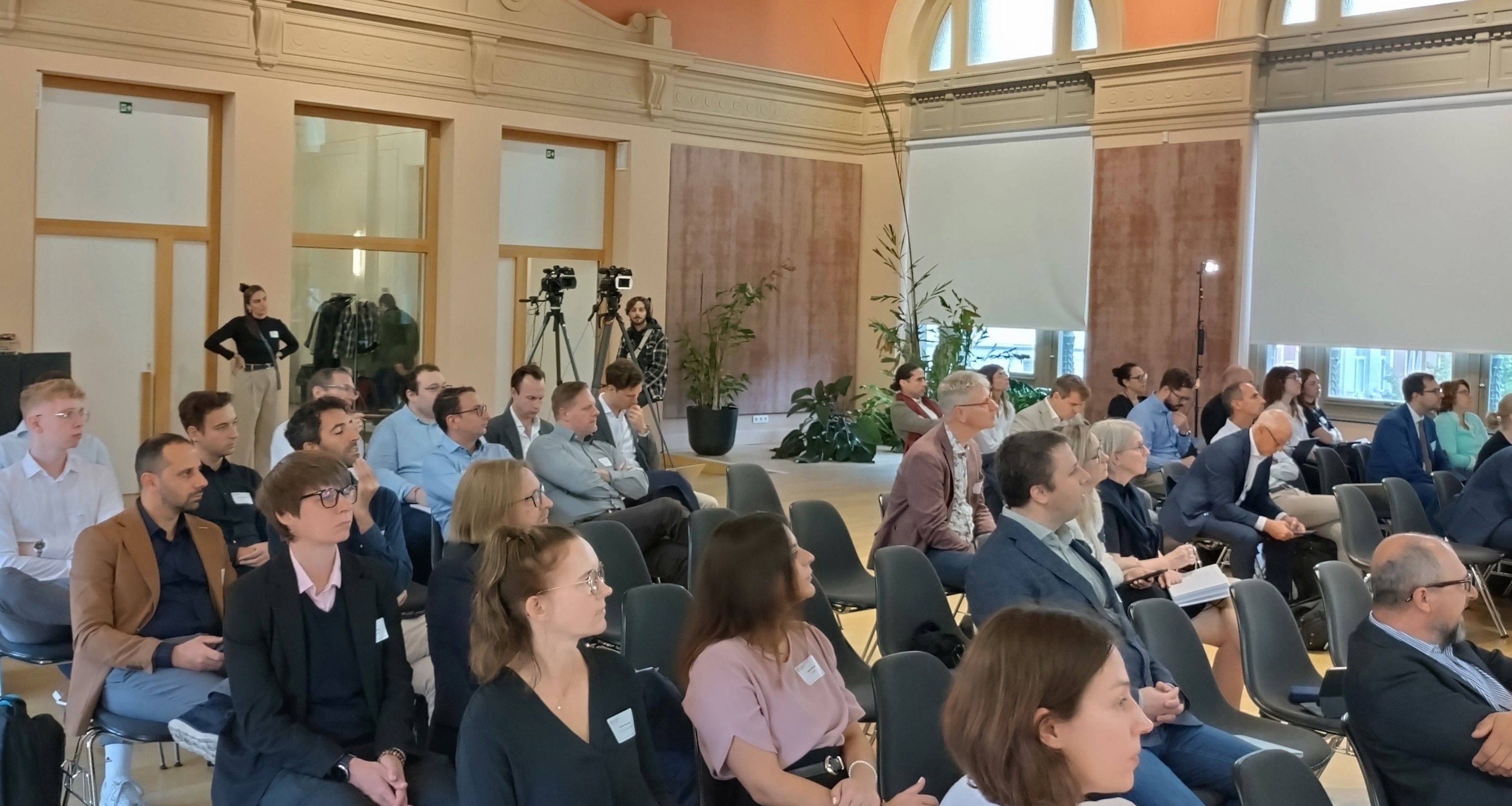
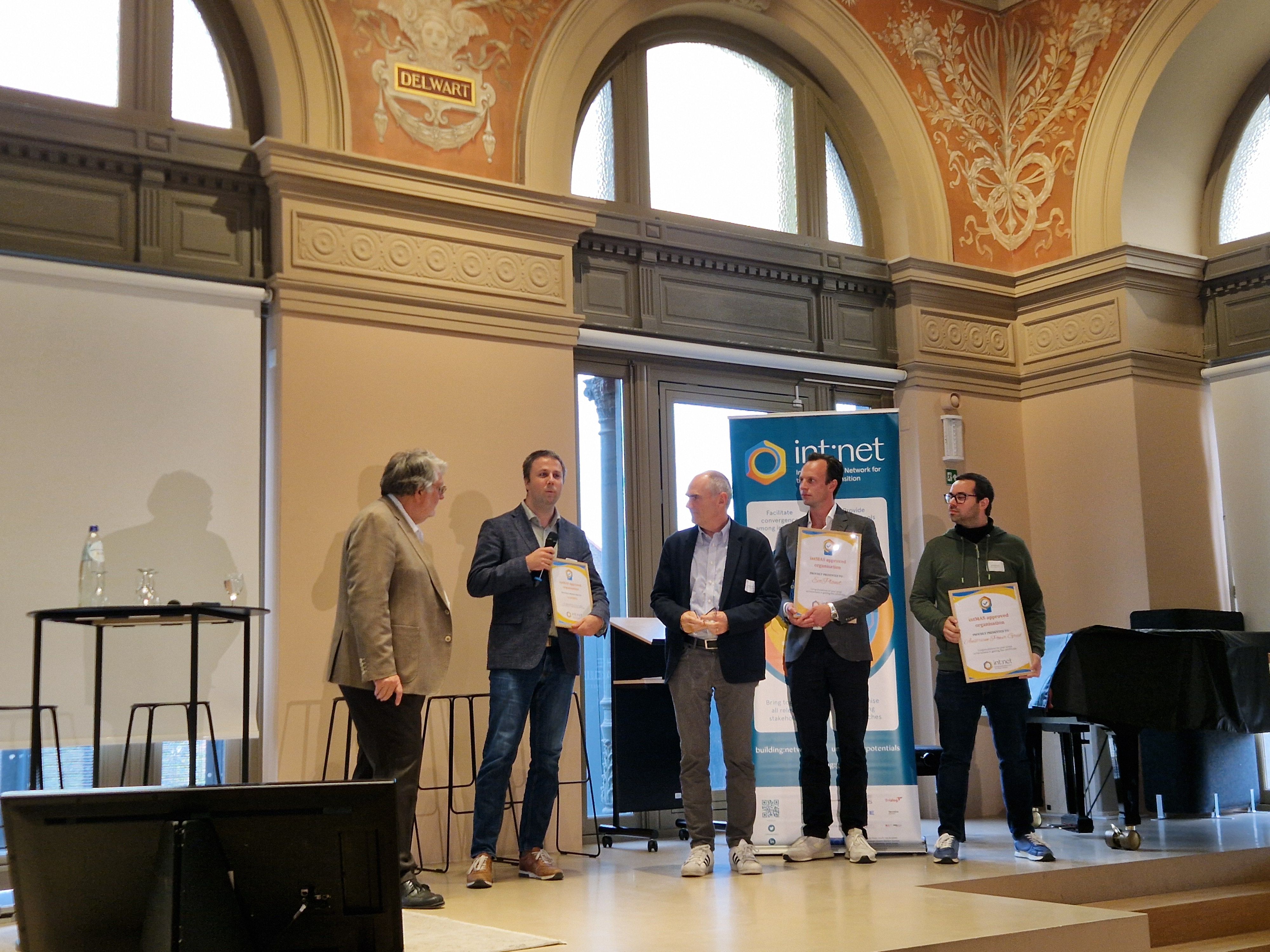
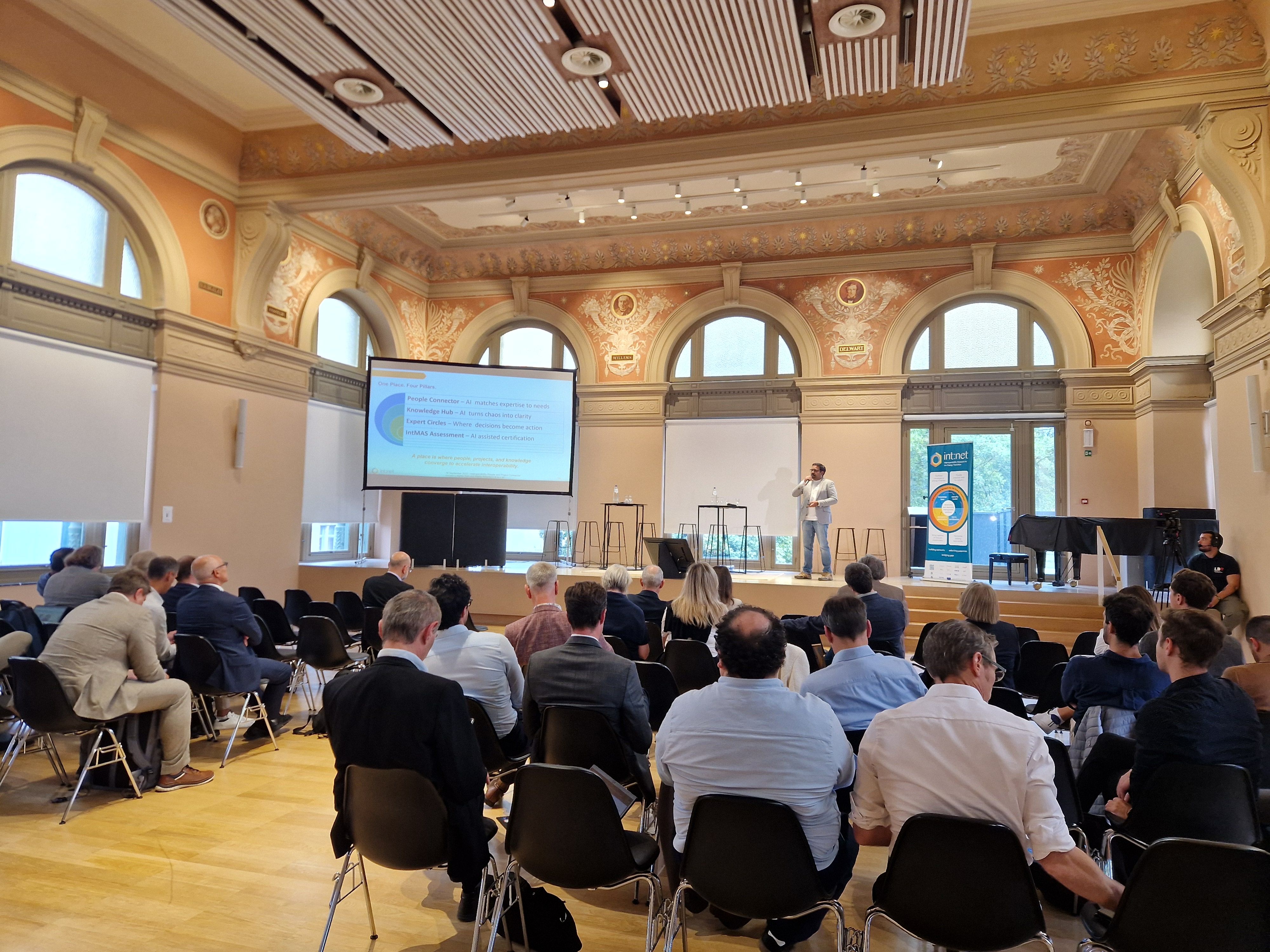
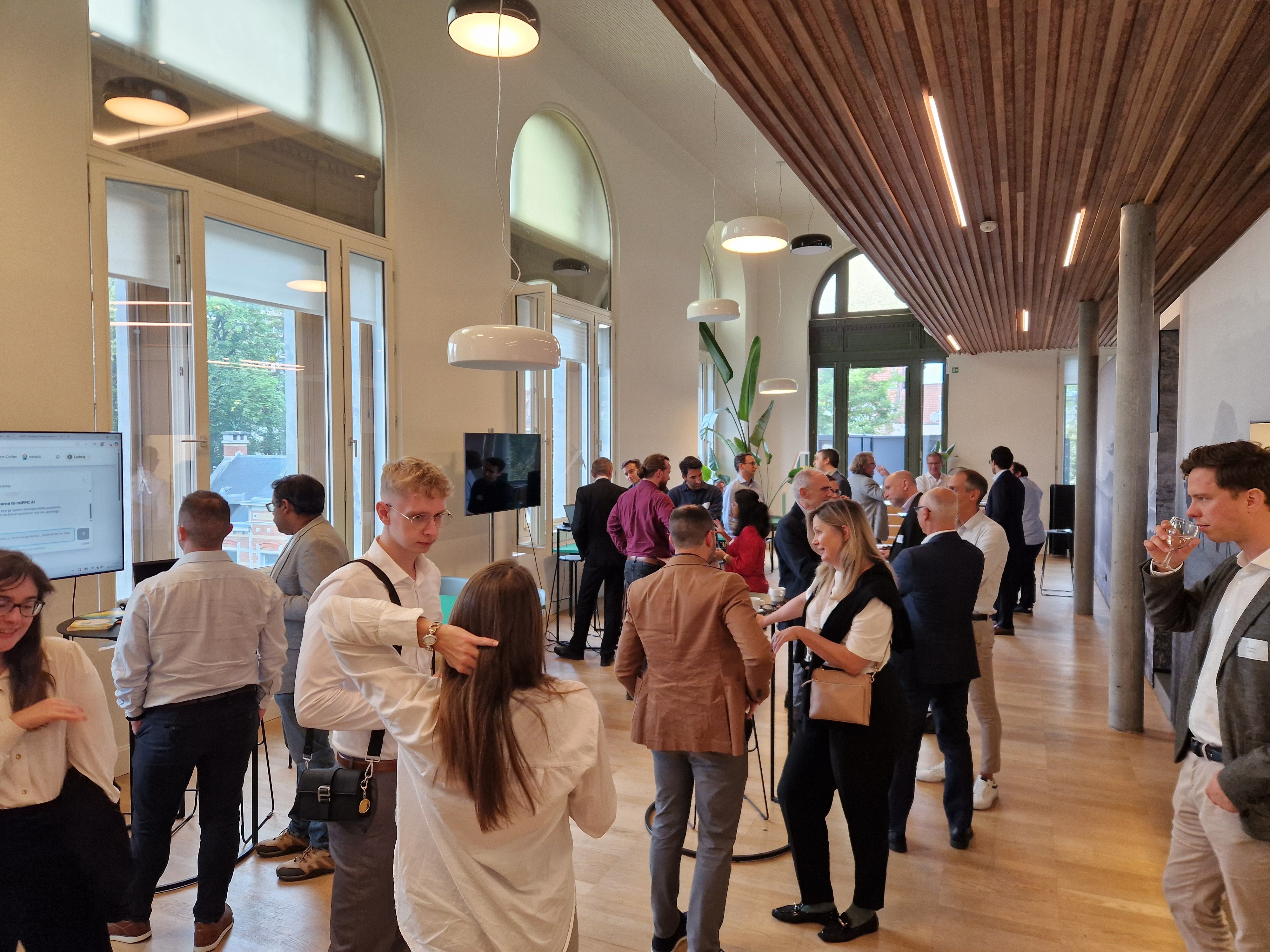
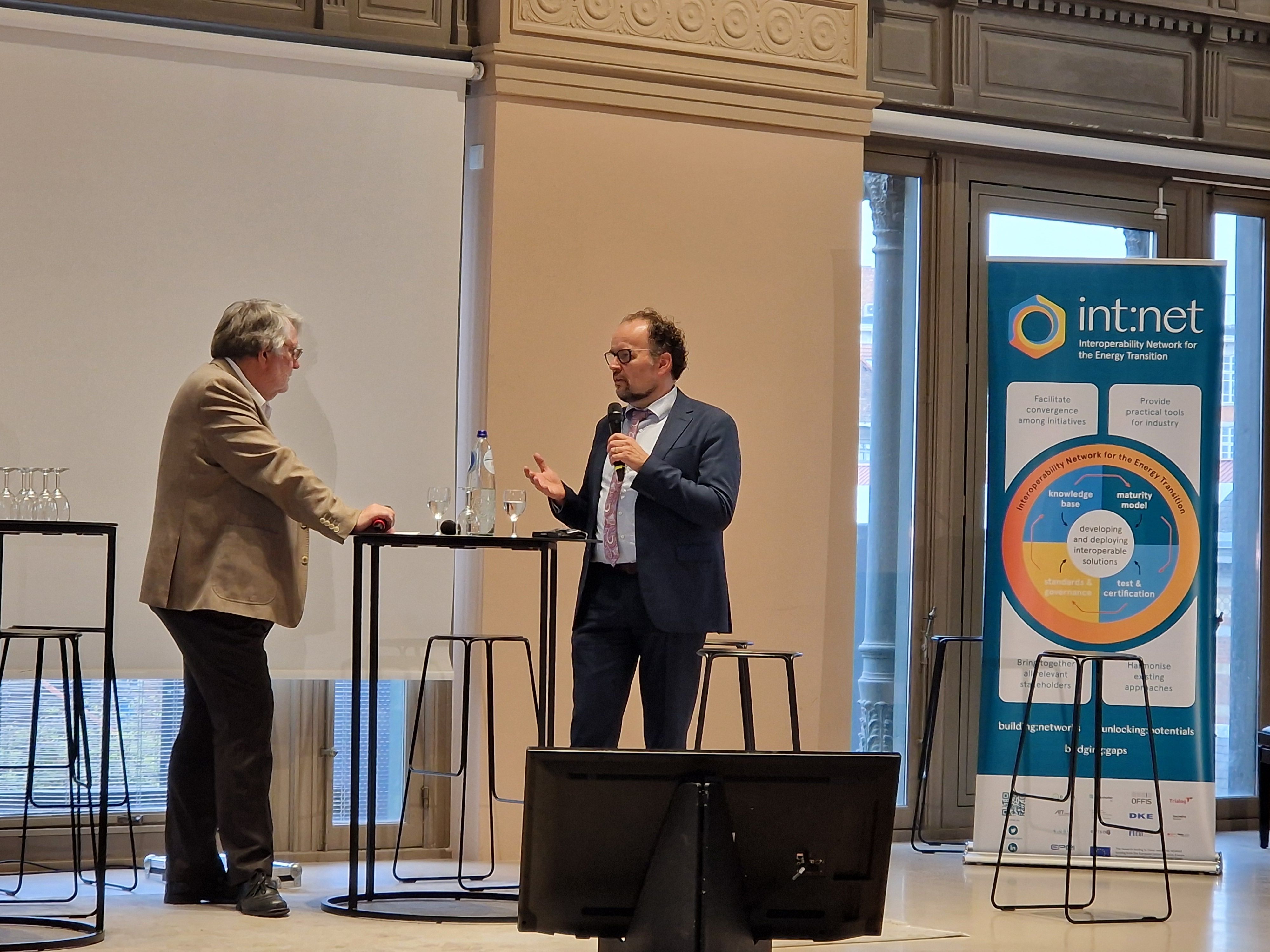
It is not enough to want, one must also act.” (Johann Wolfgang von Goethe)
That was the motto for the final conference of the EC-funded project int:net. Experts from multiple sectors and levels of governance met to receive and discuss the project’s results.
In Block 1 (“The making of int:net”) project leader Antonello Monti from Fraunhofer FIT and the work package leaders presented their learnings and results. Block 2 (“Multi-facetted interoperability”) was dedicated to digging deeper into methodologies for developing architecture models and systemic testing. And in Block 3 (“Making it happen”), project partners presented a set of practical tools that will be the main heritage of int:net. After EMINENT (a tool to measure IOP maturity in a community), the IntMAS model for introducing interoperability in companies was presented and the first enterprises have been awarded the “IntMAS approved organisation” label. Antonello Monti and Ludwig Karg presented the IntMAS certificate to Henry Keppler from Ecoplanet, Andreas Strasser from APG and Joep van Genuchten from uuidea. Finally, the “IOP compass” has been launched (an online capacity building tool for novices in interoperability) as well as IntPPC, the “Interoperability People and Projects Connector” – an online space for the int:net community to keep collaborating and inviting ever more experts to join their forces to quickly move forward in energy interoperability.
Block 4 of the conference hosted a panel with a well-defined composition of experts. In his initial reflection to the motto “Looking back and moving forward”, Mark van Stiphout from DG ENER expressed his satisfaction with the project results. Svetoslav Mihaylov from DG CNECT values very highly that int:net has acted as a coordinator for the Energy Data Space Cluster Projects (EDSCP) and published the “Blueprint of the Common European Energy Data Space (CEEDS)”.
Reflecting on a picture from an orchestra (which Frederik Loeckx from Flux50 had brought) the panel discussed governance scenarios from “motivating people” to “framing with strong institutions”. Mona Marie Bielig from University Seeburg pointed out that at the end it will be people to act and fill the framework. Christiane Mann, representing T&D Europe, pointed to good examples from other sectors, e.g. the manufacturing industry which has managed to agree on a broad set of standards and models to combine them. Natalie Samovich from AIOTI and Massimo Bertoncini representing Rome Flex supported the idea of strong industry communities that jointly contribute to standardisation to lay ground for their business models. Michael Hübner, coordinator of the CET Partnership, contributed with experiences from funding programs, e.g. the Interoperability Validation Network triggered by Austrian partners in the framework of ERA-Net Smart Energy Systems and CETP.
A video summary of the conference with pitches from active contributors will soon be available here. All presentations and links to further reading are also available here.
| Time | Item |
|---|---|
| 09:00 | Welcome and introduction | Antonello Monti, Fraunhofer FIT and Rolf Riemenschneider, DG CONNECT |
| Block 1 - The making of int:net | |
| 09:15 | int:net as a whole and its role in the dataspace discussion | Antonello Monti, Fraunhofer FIT |
| 09:25 | Use cases to explore the scope | Maider Santos Mugica, Tecnalia |
| 09:35 | Describing interoperability maturity | Gianluca Lipari, EPRI |
| 09:45 | Testing systemic interoperability | Thomas Strasser, AIT |
| 09:55 | From standards to governance | René Kuchenbuch, OFFIS |
| 10:05 | Involvement and collaboration | Kristin Petersen, B.A.U.M. |
| 10:15 | Coffee break |
| Block 2 - Multi-facetted interoperability | |
| 10:45 | Revisiting the definition of interoperability | Laia Guitart, E.DSO & Joep van Genuchten, EPRI Contractor Presentation of the definition agreed upon by the int:net consortium |
| 10:55 | From interoperability standards to interoperability profiles | Diana Jimenez & Antonio Kung, Trialog About architectures, models and governance |
| 11:15 | From data management to interoperable data spaces | Charukeshi Joglekar, Fraunhofer FIT & Nicolo Rossetto, EUI Energy Data Space Cluster Projects (EDSCP) and the role of int:net |
| 11:35 | From component testing to systemic test approaches | Thomas Strasser, AIT & Sonia Jimenez, IDSA Quality criteria for advanced validation of data space implementations |
| 11:55 | From technological interoperability to interoperability governance | Mona Marie Bielig, Seeburg Castle University & Laia Guitart, E.DSO The role of society and networks for the improvement of interoperability |
| 12:15 | Lunch buffet and networking |
| Block 3 – Making it happen | |
| 13:15 | More than a dream: from int:net and EDSCP to INSIEME | Georg Hartner & Natalie Samovich, INSIEME Project Building a Common European Energy Data Space (CEEDS) |
| 13:25 | Understanding potentials and hurdles of interoperability in practice | Diana Jimenez, Trialog & Carlos Ayon Mac Gregor, B. A.U.M. Introduction to the newly developed ontology constraints tester |
| 13:35 | EMINENT to assess maturity of interoperability communities | Jemima Hurley & Joep van Genuchten, EPRI Presenting a ready to use online tool and testimonials of test users |
| 13:45 | IntMAS to establish a continuous improvement process | Ludwig Karg, B.A.U.M. Awarding the first “IntMAS approved” labels |
| 14:10 | The int:net Compass | Laia Guitart, E.DSO & René Kuchenbuch, OFFIS Introduction to the interoperability capacity building tool |
| 14:15 | From the int:net community to the Interoperability People and Project Connector (IntPPC) | Alphin Tom & Kristin Petersen, B.A.U.M. Establishing a diverse knowledge and collaboration network |
| 14:45 | Coffee break |
| Block 4 – Looking back and moving forward | |
| 15:00 | Introduction to the panel: appraisal and outlook by EU Commission | Mark van Stiphout, DG ENER |
| 15:15 | The multi-faceted interoperability challenge: learnings, expectations and plans Fishbowl-type panel with representatives from academia, technology, policy and application domains Moderation: Ludwig Karg, B.A.U.M. Panelists: Mark van Stiphout, DG ENER Svetoslav Mihaylov, Unit E4 – Internet of Things Christiane Mann, T&D Europe Michael Hübner, BMIMI/ CET Partnership Massimo Bertoncini, Engineering/ Rome Flex Frederik Loeckx, Flux50 Natalie Samovich, AIOTI Mona Marie Bielig, Seeburg Castle University |
| 16:15 | Closing words | Antonello Monti, Fraunhofer FIT |
| Until 17:00 | Open exchange and networking |
⇒ intnet_Final-Conference_master_FINAL_ALL.pdf








